Many Microsoft Outlook users are encouraged to switch to IBM Lotus Notes email application because of the many benefits associated with Notes. Some of the benefits, which urge people to change their email client from MS Outlook to Lotus Notes, are as follows:
• Replication Possible in Lotus Notes: Lotus Notes helps you to keep multiple copies of a single database. These multiple copies are called “Replicas” on multiple servers or workstations. This helps you to access particular information on different networks over a variety of locations. A great advantage of this replication is that users in one office can make changes to some replica on their server. And, at the same time, users in some other office can also make changes to that replica of the same database on their server.
• Lotus Notes provides the facility to work offline: As an example, you can replicate a copy of your Notes email database to your laptop before leaving the office. Now, you can work it offline and when you are back in the office, you can replicate that back it back on the server.
• Sharing of documents: Lotus Notes makes it easy for multiple people to work on a document, review it, and make comments to it.
• Easily routed workflow: Lotus Notes allows you to set up routes as per your work requirements. For example, you fill a Purchase Order. Once submitted it can automatically be sent to your Business Manager. He can digitally sign it and send it to Purchasing. They can automatically update the records, and fax the form to the vendor.
• Easy customization: Lotus Notes is very customizable. You can easily customize your email arriving rules, sending rules, profiles etc.
• Documents inherit values from other documents: For example, you can inherit the information from the original document while responding to a posting in a newsgroup. You can see the information such as when was the original document posted, who posted it, subject of that post, and so on.
• Modification Log: Lotus Notes preserves the log for document modifications such as who modified it and when.
• Graphics, video, sound: Notes documents (including email) can have graphics, video, and sound along with the regular text.
• Web Publishing: Now, almost all the Lotus Notes benefits are made available for the Web. This means, you can now browse or edit information of Notes databases on the Web also. Notes databases are automatically converted to HTML.
• Security: Lotus Notes provides higher level of security of your information as compared to Outlook.
a) User’s password cannot be changed by Notes Administrator.
b) The entire databases can be encrypted to prevent users from obtaining a copy of it.
c) Databases security levels can be established for different users. Certain areas of a particular form can be encrypted in such a way that only those that have its key can see it. One form can have multiple fields encrypted with different keys.
d) Documents can include digital signatures.
e) Sensitive information can be prevented from being forwarded by any recipient to others.
All these advantages of using Lotus Notes as an email client are encouraging users to switch from Outlook to Notes. Many Lotus Notes users, who decide for this switch, feel the need to transfer their Outlook PST data to Notes NSF format. Using a third-party software tool to convert Outlook items to Notes is one of the most viable options. There are many tools available around to transfer Outlook emails to Notes. One such tool is SysTools Outlook to Notes software. It is a simple and intuitive software solution to transfer PST to Notes. This is one of the most reliable PST to Notes software tools for converting PST items to Notes easily, speedily, and cost-effectively.

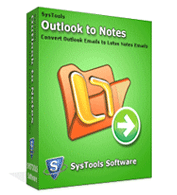
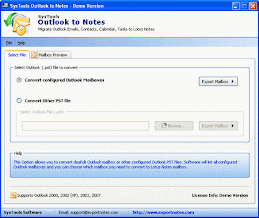
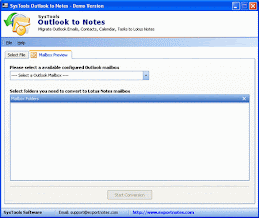
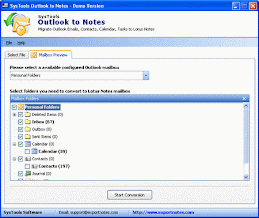

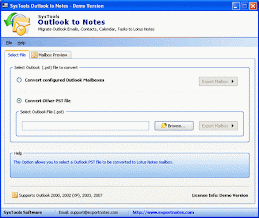

No comments:
Post a Comment
Note: Only a member of this blog may post a comment.